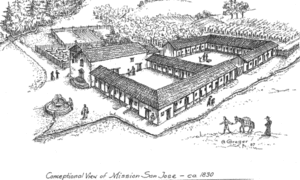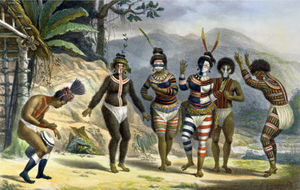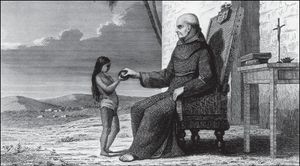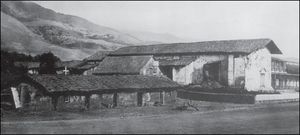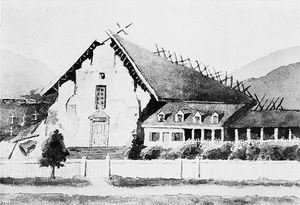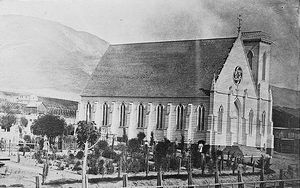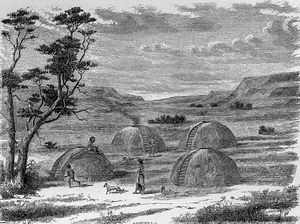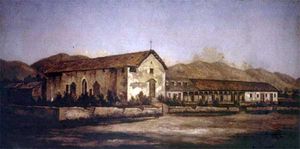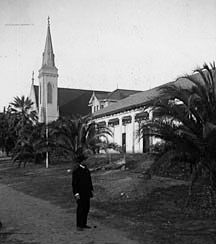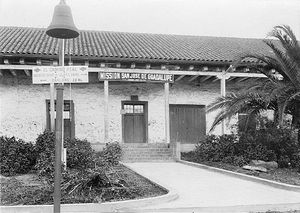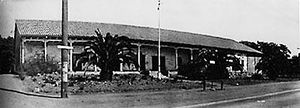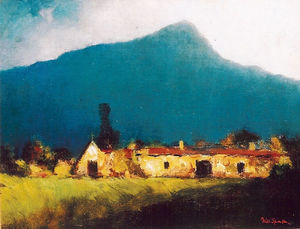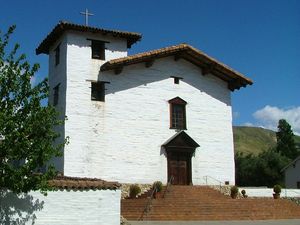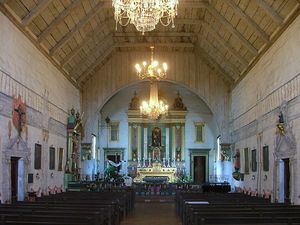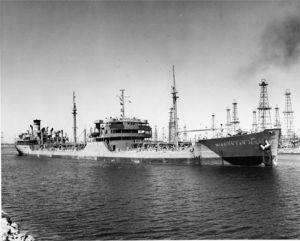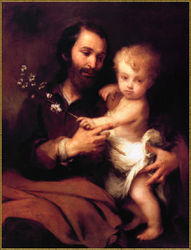Mission San José/Gallery: Difference between revisions
Jump to navigation
Jump to search

imported>Robert A. Estremo (add image) |
imported>Robert A. Estremo m (add image) |
||
| Line 3: | Line 3: | ||
<gallery perrow=3 widths=300px heights=250px> | <gallery perrow=3 widths=300px heights=250px> | ||
Image:Mission San Jose natives.jpg|{{Mission San Jose natives.jpg/credit}}<br/>Georg von Langsdorff, an early visitor to California, sketched a group of ''[[Ohlone|Costeño]]'' dancers at [[Mission San José]] in 1806.<ref>von Langsdorff, p. 5: "''The hair of these people is very coarse, thick, and stands erect; in some it is powdered with down feathers''." Langsdorff noted, "''Their bodies are fantastically painted with charcoal dust, red clay, and chalk. The foremost dancer is ornamented all over with down feathers, which gives him a monkey-like appearance; the hindermost has had the whimsical idea of painting his body to imitate the uniform of a Spanish soldier, with his boots, stockings, breeches, and upper garments''."</ref><ref>Paddison, p. 130</ref> | Image:Mission San Jose natives.jpg|{{Mission San Jose natives.jpg/credit}}<br/>Georg von Langsdorff, an early visitor to California, sketched a group of ''[[Ohlone|Costeño]]'' dancers at [[Mission San José]] in 1806.<ref>von Langsdorff, p. 5: "''The hair of these people is very coarse, thick, and stands erect; in some it is powdered with down feathers''." Langsdorff noted, "''Their bodies are fantastically painted with charcoal dust, red clay, and chalk. The foremost dancer is ornamented all over with down feathers, which gives him a monkey-like appearance; the hindermost has had the whimsical idea of painting his body to imitate the uniform of a Spanish soldier, with his boots, stockings, breeches, and upper garments''."</ref><ref>Paddison, p. 130</ref> | ||
Image:Mision San Jose circa 1830.gif|{{Mision San Jose circa 1830.gif/credit}}<br />The complex at Mission San José, ''circa'' 1830. | |||
Image:Indians dancing at the San Jose Mission.jpg|{{Indians dancing at the San Jose Mission.jpg/credit}}<br />Indians dancing at the San José Mission in 1839, from ''Voyage Pittoresque et Historique au Bresil.'' | Image:Indians dancing at the San Jose Mission.jpg|{{Indians dancing at the San Jose Mission.jpg/credit}}<br />Indians dancing at the San José Mission in 1839, from ''Voyage Pittoresque et Historique au Bresil.'' | ||
Image:Father Narciso Durán and an Indian child.jpg|{{Father Narciso Durán and an Indian child.jpg/credit}}<br />This likeness of Fray Narciso Durán suggests a paternalistic relationship between the missionaries and their native charges. As appears in ''Exploring du territoire de l’Oregon'' (1844). | Image:Father Narciso Durán and an Indian child.jpg|{{Father Narciso Durán and an Indian child.jpg/credit}}<br />This likeness of Fray Narciso Durán suggests a paternalistic relationship between the missionaries and their native charges. As appears in ''Exploring du territoire de l’Oregon'' (1844). | ||
Revision as of 13:30, 30 April 2018
(PD) Painting: Georg von Langsdorff / José Cardero
Georg von Langsdorff, an early visitor to California, sketched a group of Costeño dancers at Mission San José in 1806.[1][2]
Notes and references
- ↑ von Langsdorff, p. 5: "The hair of these people is very coarse, thick, and stands erect; in some it is powdered with down feathers." Langsdorff noted, "Their bodies are fantastically painted with charcoal dust, red clay, and chalk. The foremost dancer is ornamented all over with down feathers, which gives him a monkey-like appearance; the hindermost has had the whimsical idea of painting his body to imitate the uniform of a Spanish soldier, with his boots, stockings, breeches, and upper garments."
- ↑ Paddison, p. 130
![(PD) Painting: Georg von Langsdorff / José Cardero Georg von Langsdorff, an early visitor to California, sketched a group of Costeño dancers at Mission San José in 1806.[1][2]](/wiki/images/thumb/8/8e/Mission_San_Jose_natives.jpg/238px-Mission_San_Jose_natives.jpg)
